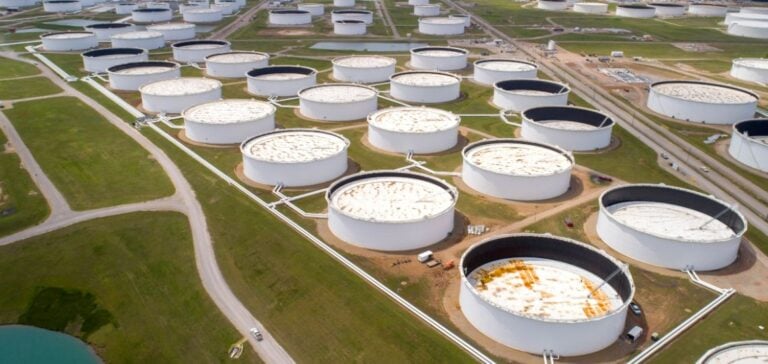U.S. commercial crude oil stocks recorded a decline of 900,000 barrels in the week ending December 13, according to data released by the U.S. Energy Information Administration (EIA). This figure is significantly lower than the forecasted 1.7 million barrels, as per analysts’ consensus gathered by Bloomberg.
Refineries Operating Below Capacity
The limited reduction in stocks is partly attributed to a lower utilization rate of U.S. refinery capacities, which decreased from 92.4% to 91.8% over the week. This change reflects reduced crude demand in domestic infrastructure.
Additionally, a statistical adjustment made by the EIA resulted in the addition of 4.4 million barrels to the volumes of crude reported as arriving on the market. This adjustment is aimed at correcting discrepancies noted in previous periods and does not reflect actual activity for the week under review.
Surge in Exports
Despite the reduced refinery activity, U.S. crude oil exports surged by 58% in a week, reaching their highest level in nearly five months. This growth contrasts with a more modest 11% increase in imports.
The refined product market also experienced a rise in gasoline stocks, which grew by 2.3 million barrels, exceeding analysts’ expectations of 2 million.
Oil Production and Demand
Demand, as measured by the volumes of refined products delivered to the market, rose by 3%. Distillates, including diesel, recorded a 30% increase in volumes, signaling robust demand in this segment.
On the production side, the United States remains at a near-record level of 13.60 million barrels per day, slightly below the historical high of 13.63 million reached the previous week.
Market Implications
The EIA’s report influenced the oil market, with the price of West Texas Intermediate (WTI) crude rising. By 16:05 GMT, the WTI barrel for January delivery traded at $71.10, marking a 1.45% increase.






















